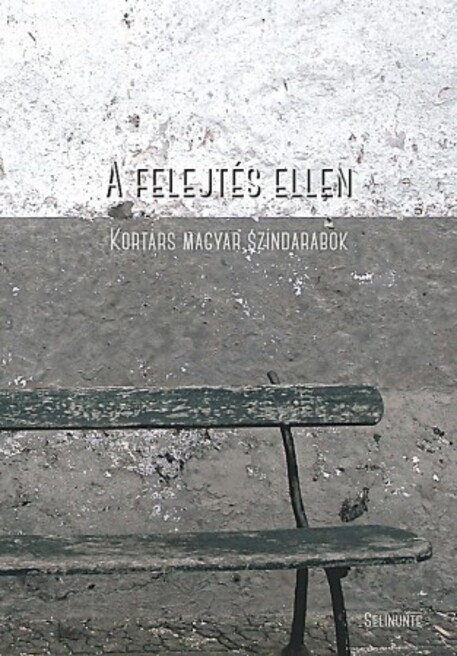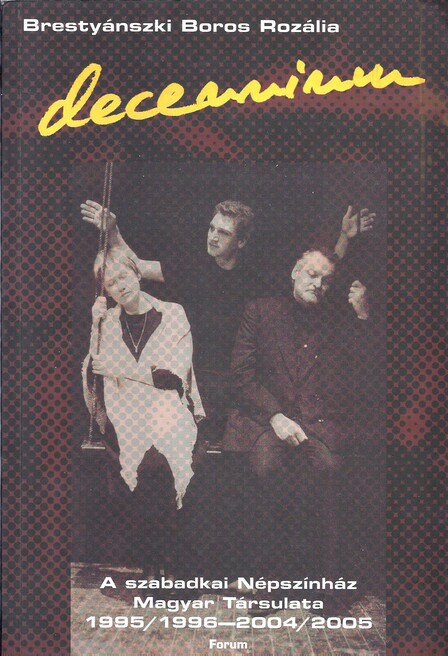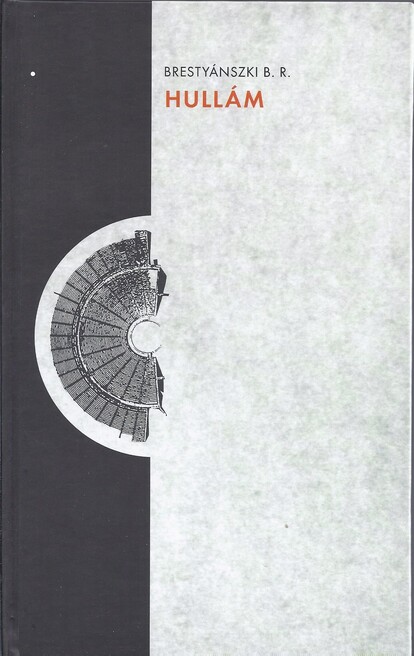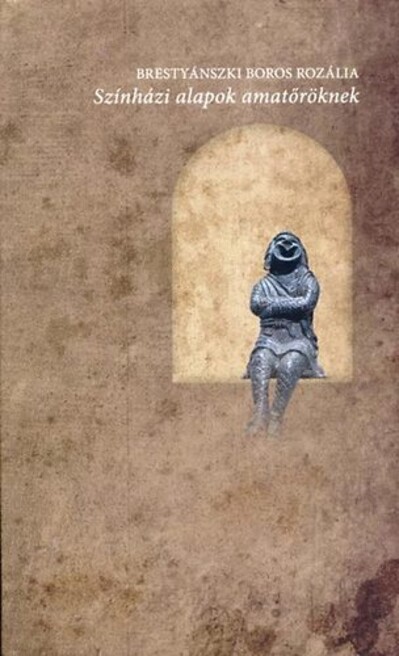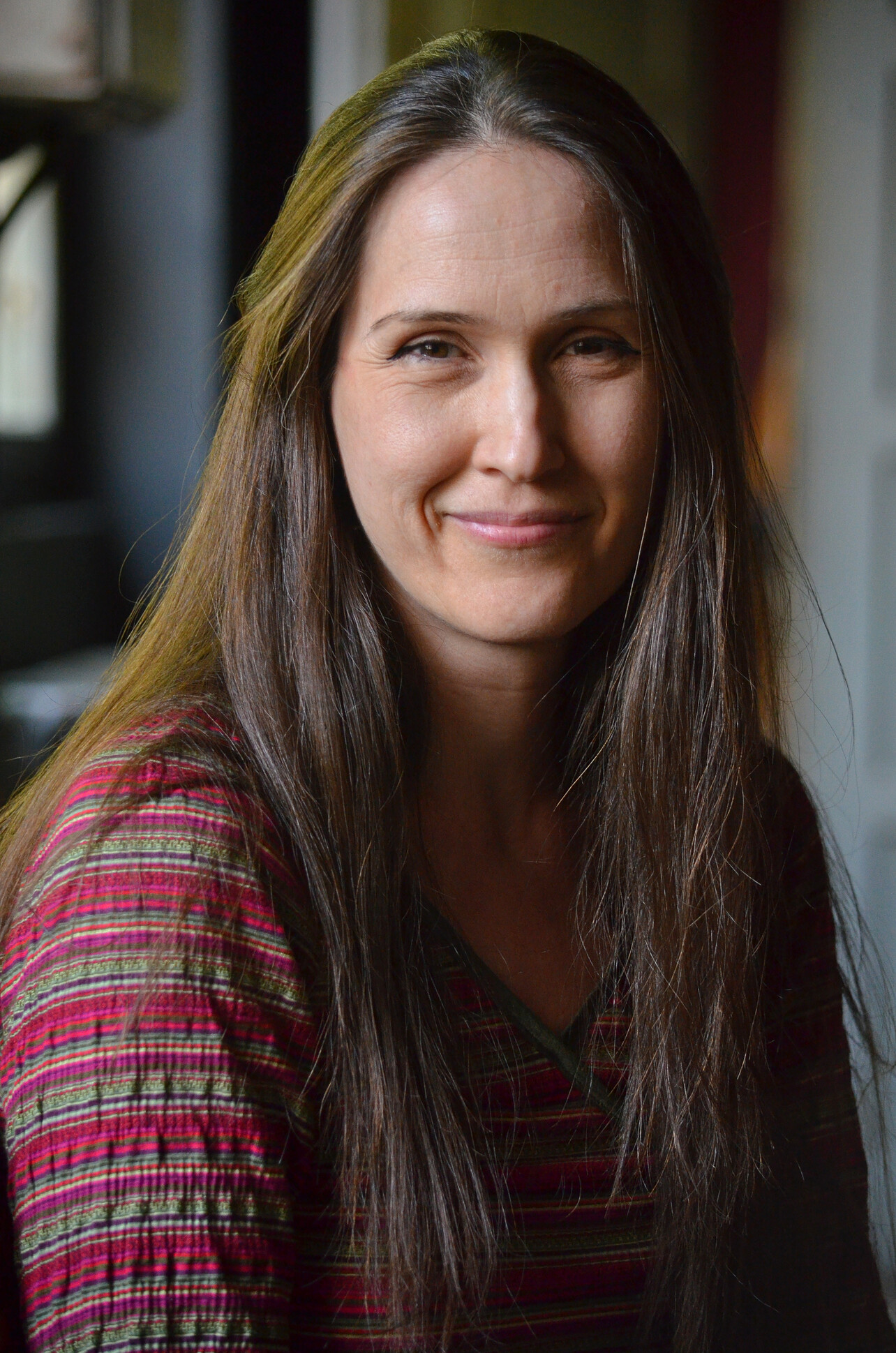Rozália Brestyánszki Boros
Bereich: Literatur
Key Facts
Nationalität
SerbienBereich
LiteraturWohnort
SuboticaEmpfehlende Institution
BMEIAZeitraum
März 2017 - April 2017born in Senta, Serbia in 1970. Since 1998 I work at the local National theater: Narodno pozorište – Narodno kazalište – Népszínház. Since 2004 I work as dramaturge of the Hungarian company (a Serbian company also exists within the same theater). I also worked with educating and training amateur and youth theatrical companies through drama pedagogy. I often translate from English, German and Serbian languages to Hungarian language. Many of my novels, translations, essays and plays have been published in the following places:
Üzenet (a literary journal), Hét nap (a weekly newspaper), Magyar szó (the largest hungarian daily newspaper is Serbia), Bárka (a literary journal in Hungary), The drama anthology of the zEtna publishing house, and various online portals
Almost twenty of my plays have premiered in various professional theatrical companies throughout Serbia and Hungary. These include:
The national theater in Subotica, The Kosztolányi Dezső theater in Subotica, The Szab-Way theater company, The theater in Novi Sad, The Jókai theater in Békéscsaba (Hungary), The Thália theater in Budapest, The Átrium theater in Budapest, The Katona József theater in Budapest
Published books:
• 2005: Decennium. A work that details the history of the Hungarian theaters in Subotica from 1995 to 2005, published by the Forum publishing house in Novi Sad
• 2010: Színházi alapok amatőröknek (The basics of theater for amateurs). A handbook published by the Hungarian Institute of Culture of Vojvodina
• 2015: Hullám (Wave). A book containing five of my dramas published by the Hungarian Institute of Culture of Vojvodina
• 2016: One of my dramas (Vörös/Red) was published within the anthology named A feledés emlékezete (The memory of forgetting) published by Ellenfény publishing house in Budapest
Awards
• 2003. Örkény István drama writing scholarship,
• 2005. NKA creative support,
• 2009. Székely János drama writing scholarship,
• 2010. Katona József drama writing competition
The Migrationist is an international, collaborative academic/professional blog designed to promote public discourse informed by academics and professionals who focus on issues surrounding migration, refugees, and human trafficking). The following link contains the English interview with myself that closely relates to the topic of my application: <link https: themigrationist.net no-dominance-an-interview-with-rozalia-brestyanszki-boros _blank external-link-new-window externen link in neuem>themigrationist.net/2014/08/01/no-dominance-an-interview-with-rozalia-brestyanszki-boros/
Vitrage
(novel)
Some prequels
I live in Subotica, the most southern town in Serbia as a part of a German-Hungarian minority. My husband’s ancestry is Montenegrin and Croatian but he attended Hungarian schools. My twin daughters have Turkish and Hungarian boyfriends. Within our circle of friends we have Serbs, Jews, Slovaks, Romany, Albanians, Bosnians and Macedonians.
Once, living in such a multi-ethnic environment was quite natural for people here. Some go as far as to state that Subotica is the most ethnically diverse little town in the world. This culturally diverse setting has always meant collective thoughts, art, life and fruitful ones at that.
The town still holds the essence of this world out of time and place. It is reflected in its spirit and beautiful Art Nouveau architecture with many vitrages, from the times of the Monarchy… Yet, the region has been at the top of the world rankings in the number suicides for a long time now.
The nineties have brought major changes to the region - and so, to the town as well. People with a healthy moral compass left in the masses because of the recent Yugoslav wars. The political and economic turmoils that came after the wars made sure that this tendency did not change.
“I want to leave, anywhere, just away from here” - there may not be a soul in Subotica that did not say this at least once.
I left Subotica as well in the nineties. I lived in Hungary for four years, but I came back… to a town much changed.
All of this is just topped by fact that the main route of the European Immigrant crisis goes through this same town.
What does motherland mean? Does it mean anything at all? What promisses does migration bring, or emigration? What does anchorage mean? Why leave or why stay? What would do I see and what do I expect if I leave? Or what do I gain and what do I see if I stay?
How to learn? How to mature, evolve, develop? Is it brave to leave or is it brave to stay? Should we witness the path of others or should it be us who set sail?
In essence, what does it mean to set sail in today's world?
Where does one search for the right path? What are we running from? Are trying to leave something behind, or to reach something?
What does it mean to have a peaceful, balanced, but most of all, happy life in the 21st. century?
The novel
I live in a theatrical environment, that is I work as a dramaturg and as plawright. Once, at the dawn of my work as a writer, I often turned to the possibilities offered by prose writing. I would create the body of Vitrage by fusing prose and drama. I would use the tools offered by both.
The text follows the life of an ordinary woman living in the mad self-deprived cauldron of the 21st century. She is living and working in a theatrical environment, in a city where almost everyone is trying to escape from.
In Subotica’s west-worshiping surface, alcohol fueled underworld, in the nights where the winds of past blows, in the midst of its balkanic hot-headedness and european-melancholy we come to see irony and self-irony.
I would write the story of a stage manager who is a witness and also has her own witnesses. We would see her own, inner migrations just as she sees the migration of the ones sitting next to her.
The inner and outer dialogs would pulsate in a symbiotic manner.
This woman would be taught to the same thing by “banalities” and “great tragedies”, the play of simple weekdays heavily seasoned by grotesque, absurd and humorous elements.
Because of this, the external events would be continuously accompanied by an internal dynamic. Pro and contra, or in other words: what is not smelled by the nose comes to be sensed by the stomach.
So in parallel to the real events, there would be a kind of “virtual-reality” which would present the path-searching, goal and the wandering in a symbolic way.
In the midst of the apparent confrontation between the east and west, there might still be the same thing: the desire for harmony.
